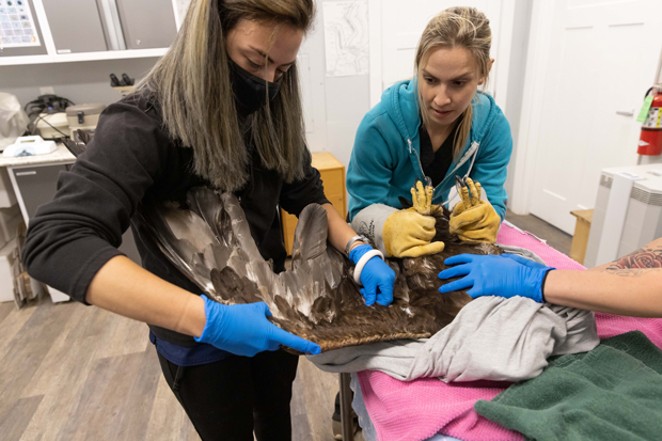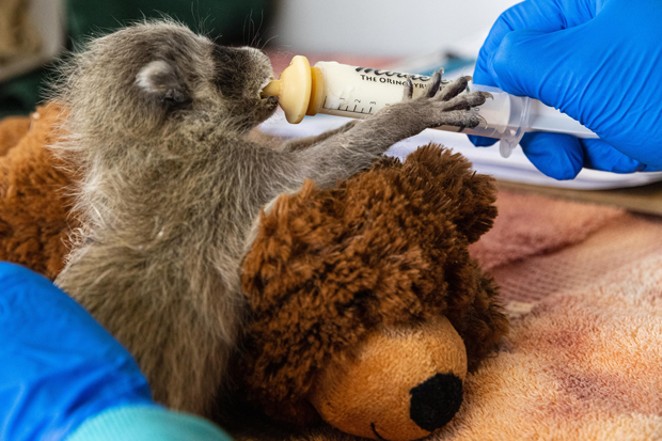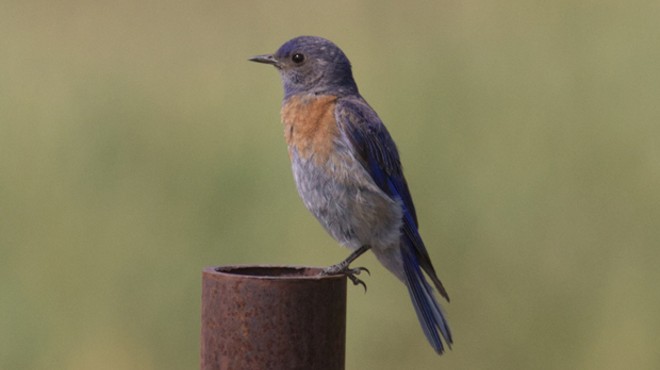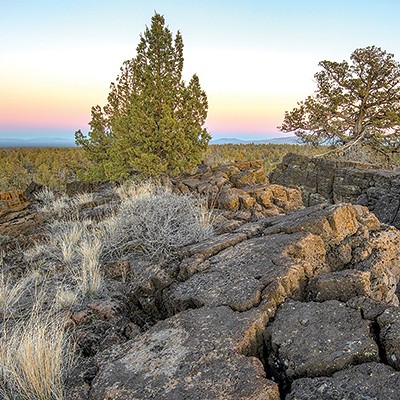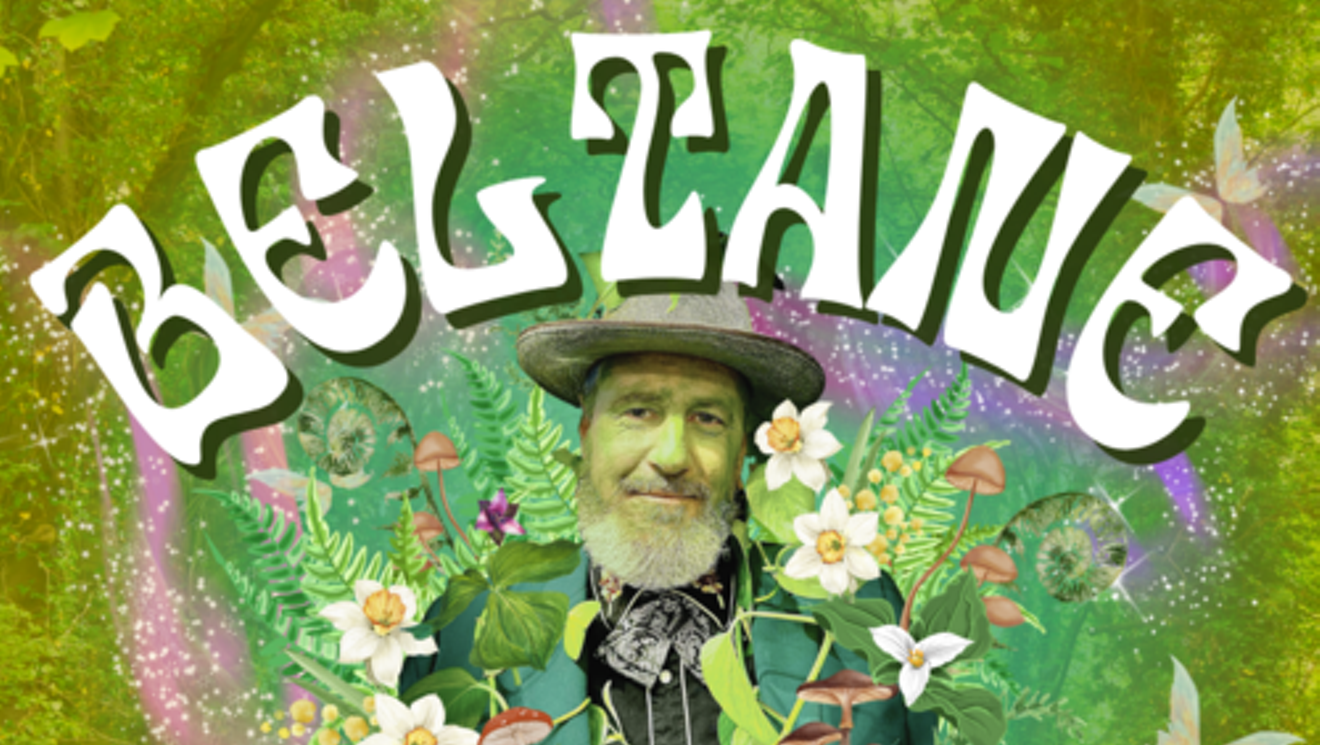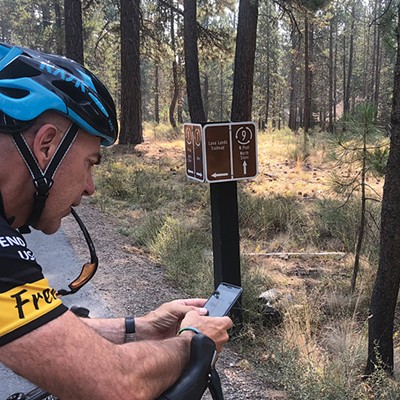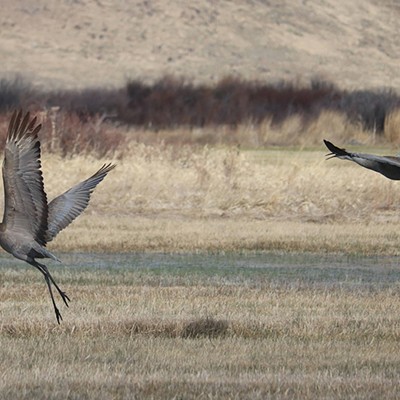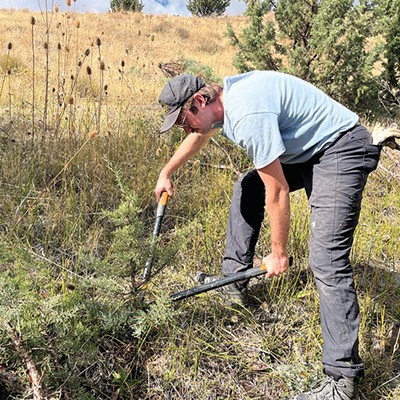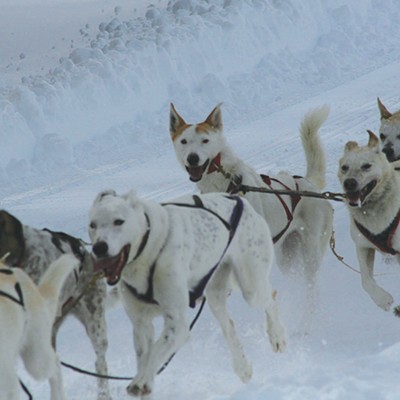Have you ever found an injured wild animal and wondered what to do or who to call? Maybe wondered about deer-proof plants or wildlife-friendly fencing? Well, now your go-to source is the wildlife rescue and education folks at Think Wild.
"We've come a long way in the last couple of years," said Sally Compton, executive director of Think Wild who started in the winter of 2020. "At that time the hospital had just been built but we didn't have any enclosures, didn't have any permits, and didn't have a rehabber. We were mainly doing education and outreach and some youth programs."
Compton hired Pauline Baker as the director of Wildlife Rehabilitation in March of 2020. "I remember her first day was when the Covid restrictions started," added Compton. Together, they and others drew up schematics for the enclosures and began applying for wildlife permits from Oregon Department of Fish and Wildlife and the U.S. Fish and Wildlife Services. Eventually, in the spring Think Wild was able to open to receive small mammals.
"We used the entire spring, summer, and fall to work on enclosure construction and to build up our volunteer base," said Compton. To date, nearly 10,000 square-feet of outdoor enclosures have been constructed, mostly by volunteers, on the 4-acre property. A 72-foot-long raptor flight cage is close to completion.
"Winter 2021 we got our federal migratory bird permits, so in February we opened for all major wildlife intake, excluding ones, like mule deer, that ODFW prohibits rehabilitation of," said Compton.
The wildlife hospital is equipped to handle intakes, examinations, x-rays and surgery for a wide variety of wildlife species including mammals, raptors, songbirds, waterfowl and corvids—including ravens, crows and jays. Injured or orphaned wildlife are the patients that the rotating veterinarians, Dr. Laura Acevedo and Dr. Jamie Thurk, examine and treat.
"From the beginning of 2021, we've treated over 500 animals," said Compton. "It's been really busy, but really awesome and fulfilling." Full capacity would be about 2,000 animals per year.
“Winter 2021 we got our federal migratory bird permits, so in February we opened for all major wildlife intake.”—Sally Compton
tweet this
Besides the hospital and rehab enclosures, Think Wild also conducts education workshops, provides community outreach and staffs a wildlife hotline to answer wildlife-related inquiries and questions. Savanna Scheiner is a wildlife education assistant with a bachelor's of science in natural resources from Oregon State University, who helps staff the hotline.
"The calls we get the most are definitely about finding baby birds—whether they have fallen from a nest, or are found on the ground as a fledgling," said Scheiner. On the phone, the staff can assess the best course of action.
Like many nonprofits, Think Wild has a dedicated volunteer corps that provides support.
"We both volunteer at the hospital and for transport," said Lisa Alger, who volunteers with her husband, Daryl. "At the hospital we do the morning shift so we get to feed and clean all the animals that can be handled by volunteers—typically baby birds and baby chipmunks and squirrels. Nothing is more satisfying than feeding a tiny chipmunk or voracious baby bird their first meal of the day." Cleaning and laundry are constants in their work, similar to what staff deal with at any hospital.
As a nonprofit, Think Wild is constantly applying for grants and accepting donations. "We received a lot of grant funding this year to expand our education program, so we've done a lot of targeted outreach to Jefferson and Deschutes County schools, as well as other nonprofits such as the Boys and Girls Club," added Compton.
"This past year we've gone through this huge expansion from having just two full-time staff and working on construction to now having six staff and over 100 active volunteers." Some of the volunteers like the Algers are trained to be part of a rescue and transport network that respond to rescue calls from all over Central and eastern Oregon. "We really depend on these volunteers who are trained to deal with potentially dangerous animals such as a hurt eagle or an animal that may have rabies," added Compton.
Rescue and treatment aside, Think Wild also looks at the larger issues of wildlife and habitat conservation. "We partnered up with Connect Central Oregon, a group that hosts virtual streaming events, and started doing a monthly Trivia Night which kind of blew up with over 100 households joining in," said Compton. This allowed the group to host guest speakers from Protect Animal Migration, Bend Pollinator Pathway, Sunriver Nature Center, and with the cities of Salem and Albany regarding water and wildlife issues—perfect opportunities to engage in some advocacy for wild creatures.
So, the next time you've got a wildlife question or want to report an injured wild animal or want to contribute to the cause: Think Wild and give its Wildlife Hotline a call.

